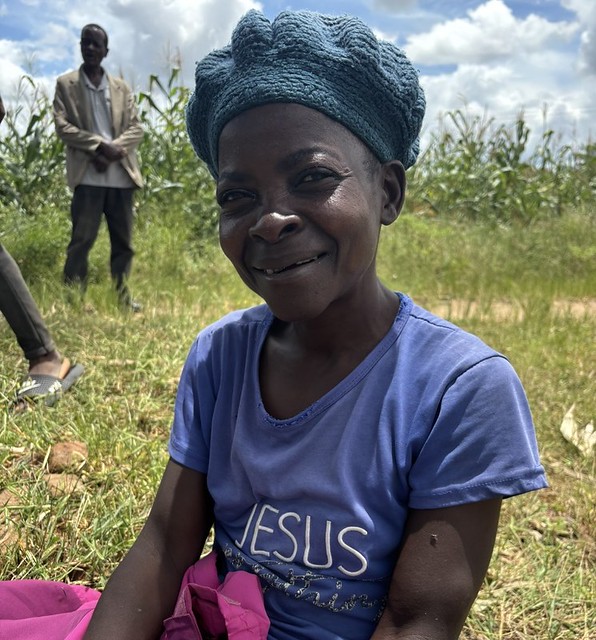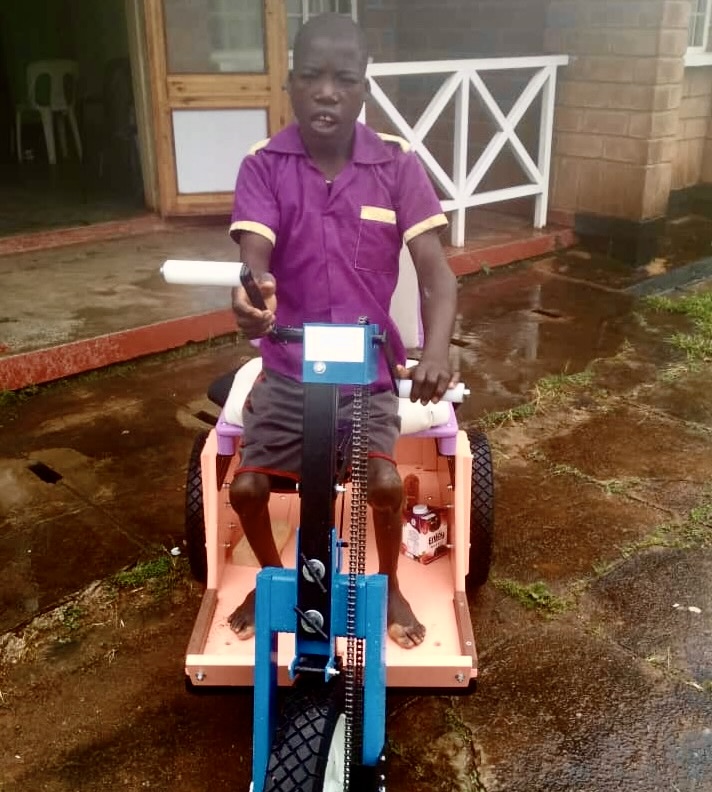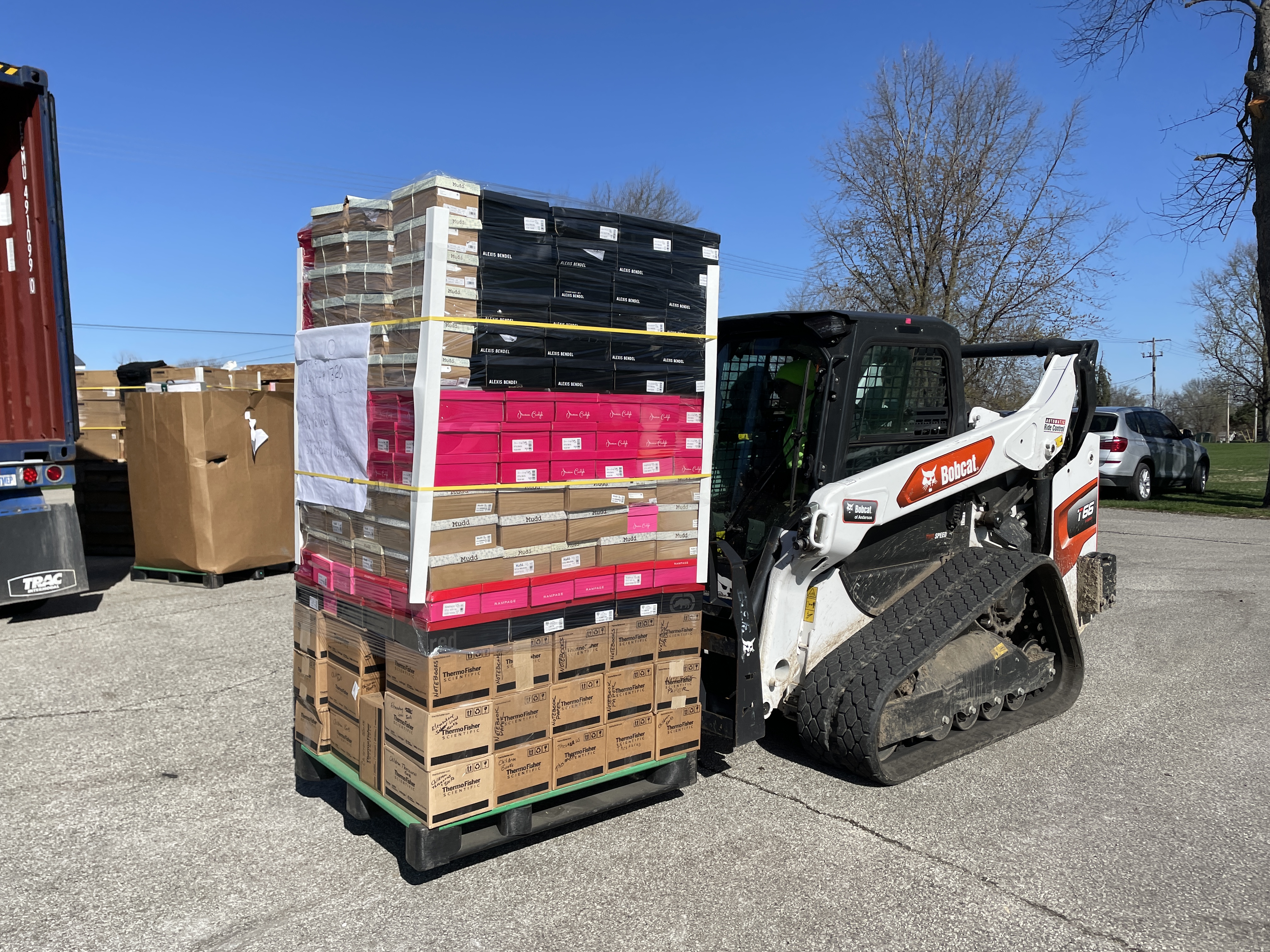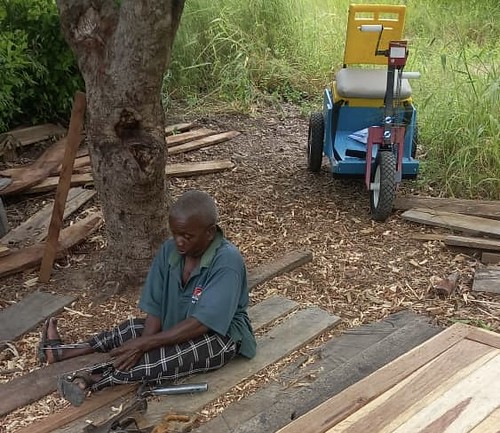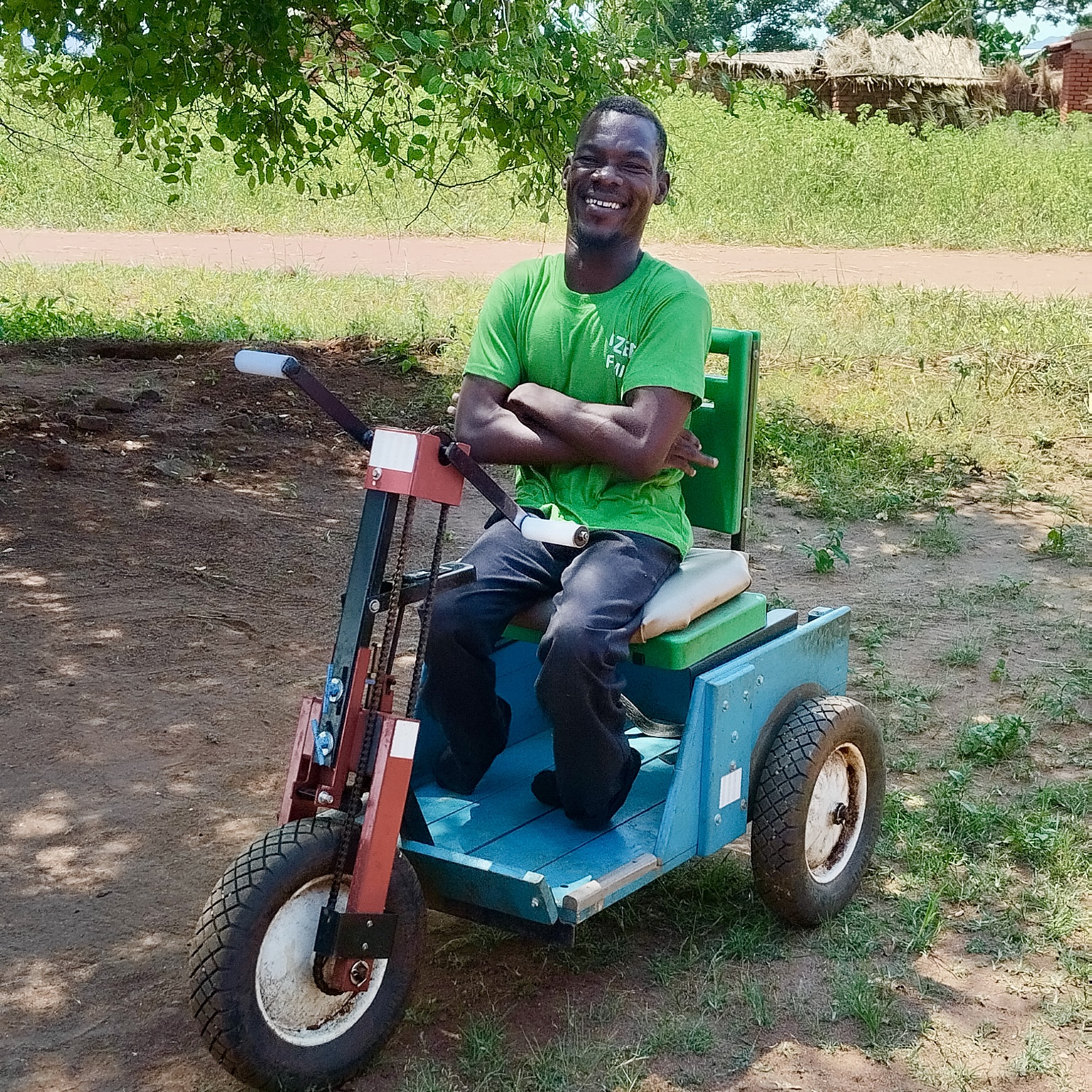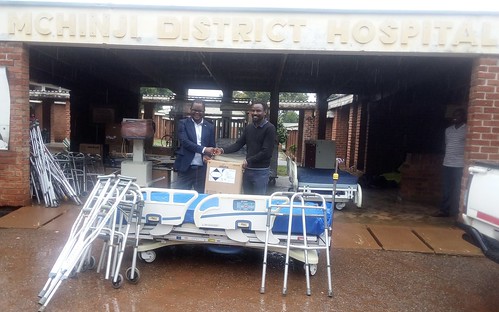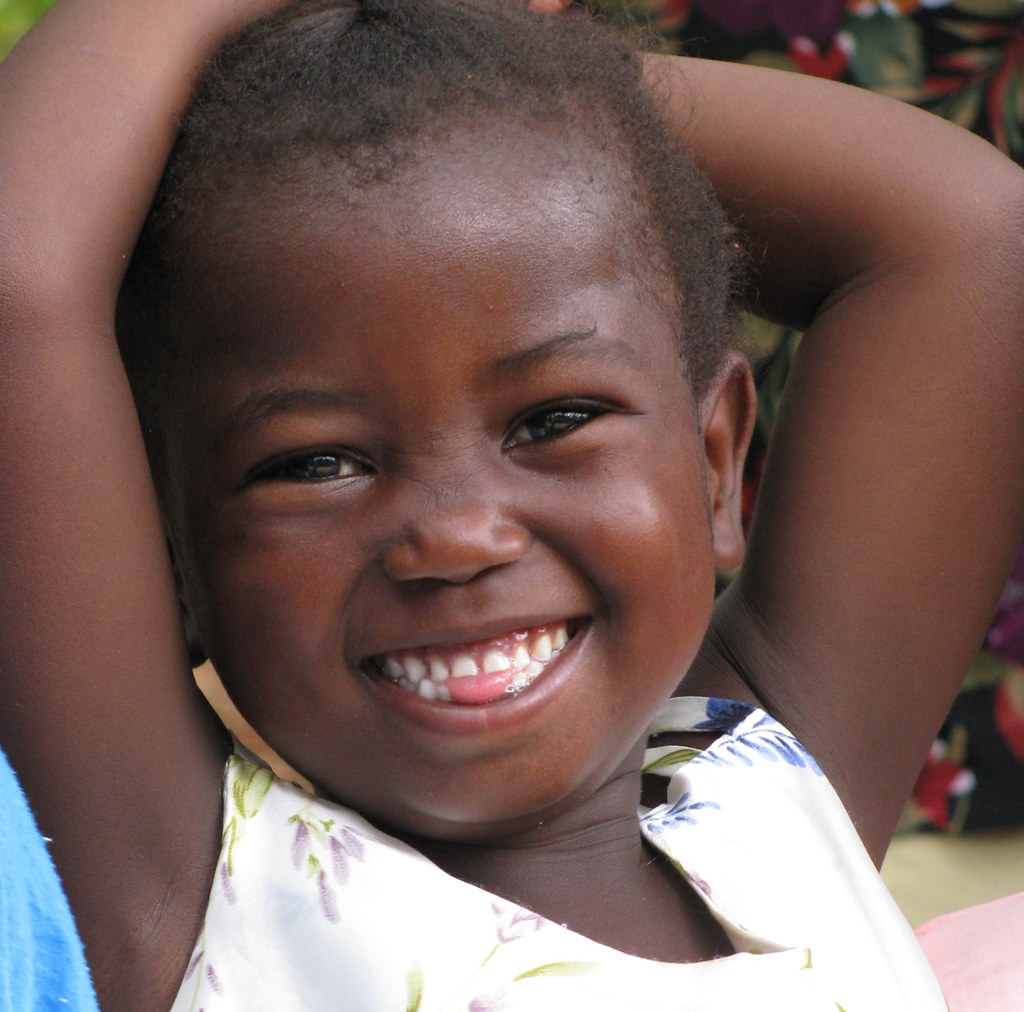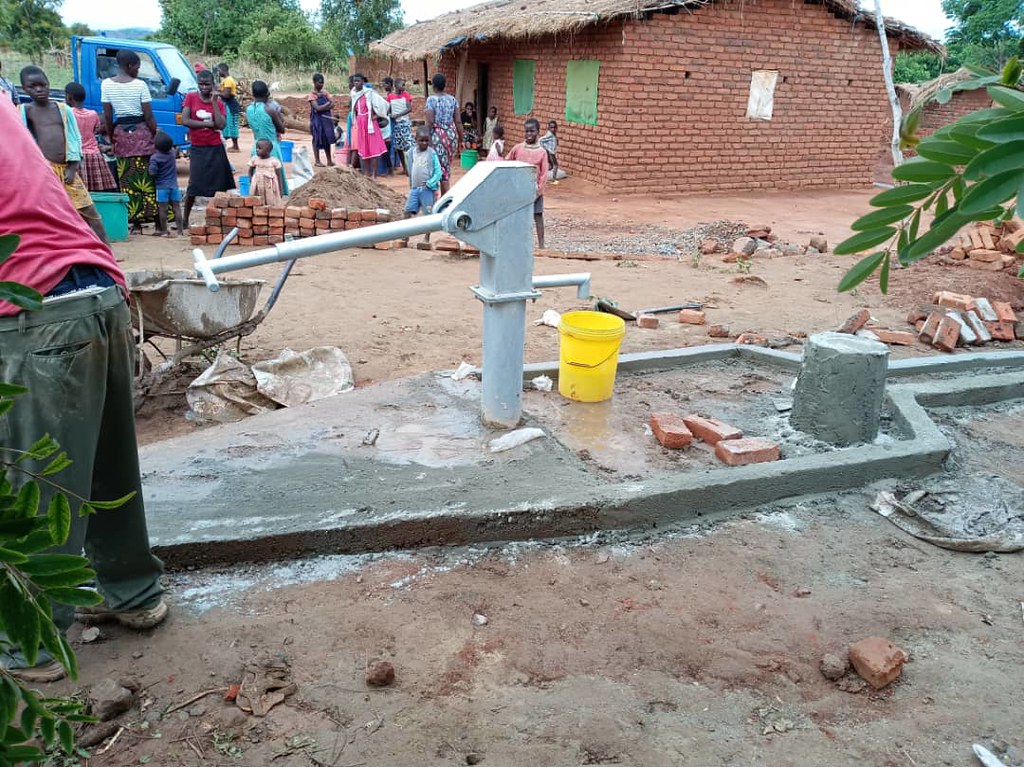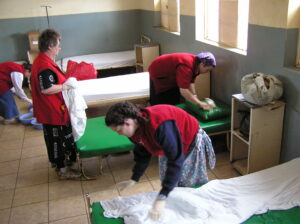
A critical need for health care assistance is evident throughout Malawi. The nationwide system of universal healthcare put in place in the 1960s and ’70s has been unable to keep pace with the demands of a population that has grown from four million to 18 million in the past 50 years. Adding to the population explosion has been the advent of HIV/Aids, the continued onslaught of malaria, tuberculosis, malnutrition, cholera, and other diseases and problems that are absent, or more fully controlled in western medical communities.
The critical nature of the need was recognized in the early 90s, and its fulfillment helped form a major focus for the Malawi Project. From its earliest year’s doctors, nurses and other medical personnel from first-world nations formed teams working in the warm heart of Africa. Still today, as a result of the foundation laid by the Malawi Project, medical teams continue to offer assistance in various parts of the country.
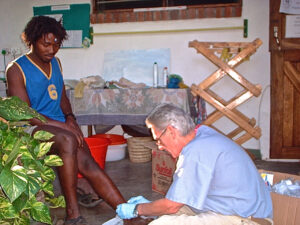
In the first phase of medical programming, one-on-one assistance was extended to individual villages, trading centers, and rural hospitals. Phase two saw the creation of a well-supplied, Malawi staffed, 5-building, 110-bed, medical complex near the capital city of Lilongwe. Here first-world medical personnel could base their operations. Supplies and equipment stored and staged at this facility were distributed to a number of individual medical facilities, primarily in the central and southern regions of the country. Phase three has seen the enlargement of a nationwide outreach to government-run facilities, with supplies going into over 600 facilities.
Medical Supplies
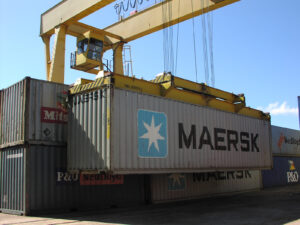
Through more than a quarter of a century, the distribution of medical equipment, supplies, and medicine has been the largest program of the Malawi Project. While a portion of the supplies has gone to private, and non-governmental facilities, the bulk of the shipments have gone directly to rural, district, and level one government facilities. By and large, private facilities have outside funding and resources, while government facilities have no source beyond the cash-starved government. While government facilities are the most neglected, the bulk of the population, especially the poor, passes through the government system.
The U.S.-based Malawi Project enjoys a relationship with the government allowing it direct access to individual facilities through our sister organization in Malawi, Action for Progress. This policy has been in place for 27 years and ensures supplies and equipment continue to reach the poor. In 2019, working with Action for Progress, a major new distribution hub was completed just west of the capital city of Lilongwe, ensuring sufficient space for storage, staging, and distribution of supplies nationwide.
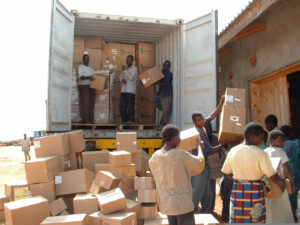
Over the years, shipments have included top-of-the-line equipment such as x-ray and ultrasound units, kidney dialysis machines, surgical tables, and state-of-the-art diagnostic equipment. General items like beds, mattresses, over-bed tables, nightstands, and lighting supplies have helped upgrade wards and individual patient rooms. Bulk supplies that have shipped include medical protective gloves, operating room gowns, and items as simple as burn ointment, band-aids, gauze, and tape. Mops, brooms, and cleaning supplies forwards and operating theaters also make their way on these 40-foot cargo containers.
Medical Stories
INFLATION’S IMPACT
Lilongwe, Malawi … Leaving a nation, (the U. S.), where a 5% inflation rate exerts a multifaceted impact on the economy, it is challenging to the visitor to comprehend the consequences of an inflation rate on daily life in Malawi of well over 100%. Because the conversion rate of the Malawi Kwacha to the U.S.…
MOBILITY REACHES NEAR THE BORDER
Manyamula, Malawi … It is sandwiched approximately halfway between the Malawi-Zambia border, and the northern district community of Mzimba. The small village community of Manyamula is found in the high plateau area of northern Malawi, and it is home to 42-year-old Chawezi Banda. She has lived in this area her entire life, and because of…
ANDREW WON’T GIVE UP
Mzimba District, Malawi … Not many people outside his home village have ever met him, and even fewer have talked to him. Only a small number know him by name. Yet people who do not know him, have never met him, and will never talk with him have changed his life. This change has taken…
SUPPLY SHIPMENTS EN ROUTE
Lebanon, Indiana … As we approach the three-month mark of the new year, supply shipments to Malawi are well underway. Three shipments are currently en route: one containing famine assistance, another with mobility units, and a third with medical, agricultural, and educational supplies. All three shipments are 40-foot shipping containers filled to capacity. They will…
MOBILITY ISSUE DOES NOT MEAN DIMINISHED VALUE
Mzuzu, Malawi … Have you ever considered that an individual with a mobility impairment may possess greater qualifications for a position compared to an individual without such an impairment? It is frequently erroneously believed that individuals with mobility challenges are of diminished value or worth to themselves or their communities. Regrettably, we often marginalize them…
ISHMAEL REACHES FOR THE STARS
Salima, Malawi … Despite never having been able to walk independently throughout his life, Ishmael, a 27-year-old from a small village near Salima, has always aspired to achieve independence and lead a successful and productive life. His opportunity arose a year ago when he received a mobility device from Action for Progress (AfP). Recently the…
HIGH DEPENDENCY UNIT CAN NOW OPEN
Mchinji, Malawi … In Malawi there are 28 districts, (like states in the U.S. or Provinces in Canada), and in each one there is a district hospital. The network of rural hospitals, spread throughout the countryside, feeds into the districts. When cases are too difficult for the rural hospital, or when there are not enough…
A VISUAL TRIP TO AFRICA
Thanks to Jim Langdon of Lafayette, Indiana, you can now take a visual trip to Malawi and see some of the programs being carried out by the Malawi Project and Action for Progress. So, prepare yourself a cup of tea, sit back and relax, click on the link below, and head out over the Atlantic…
MAKING CLEAN WATER AVAILABLE
Taking Water for Granted Malomo, Malawi … In Western nations, the availability of clean water is taken for granted. In every house, water is available in every kitchen and bathroom at the touch of a handle. Turn the handle slightly and out comes clean, fresh water. On the outside of our houses water is easily…
HIV DOWN, CHOLERA UP, CLEAN WATER NEEDED
Lilongwe, Malawi … For every 1,000 people in Malawi, the number of cases of HIV in 1995 was 13 per 1,000. By 2000 the rate had dropped to 10. By 2005 it was down to 6, and in 2010 it was reduced to 4. By 2015 it was down to 3, and in 2020 it…


